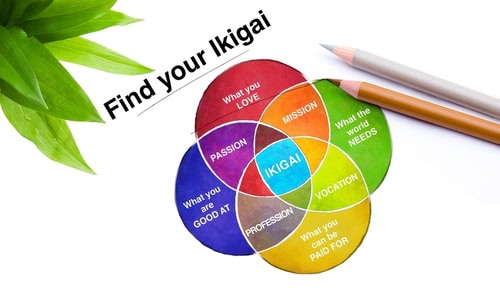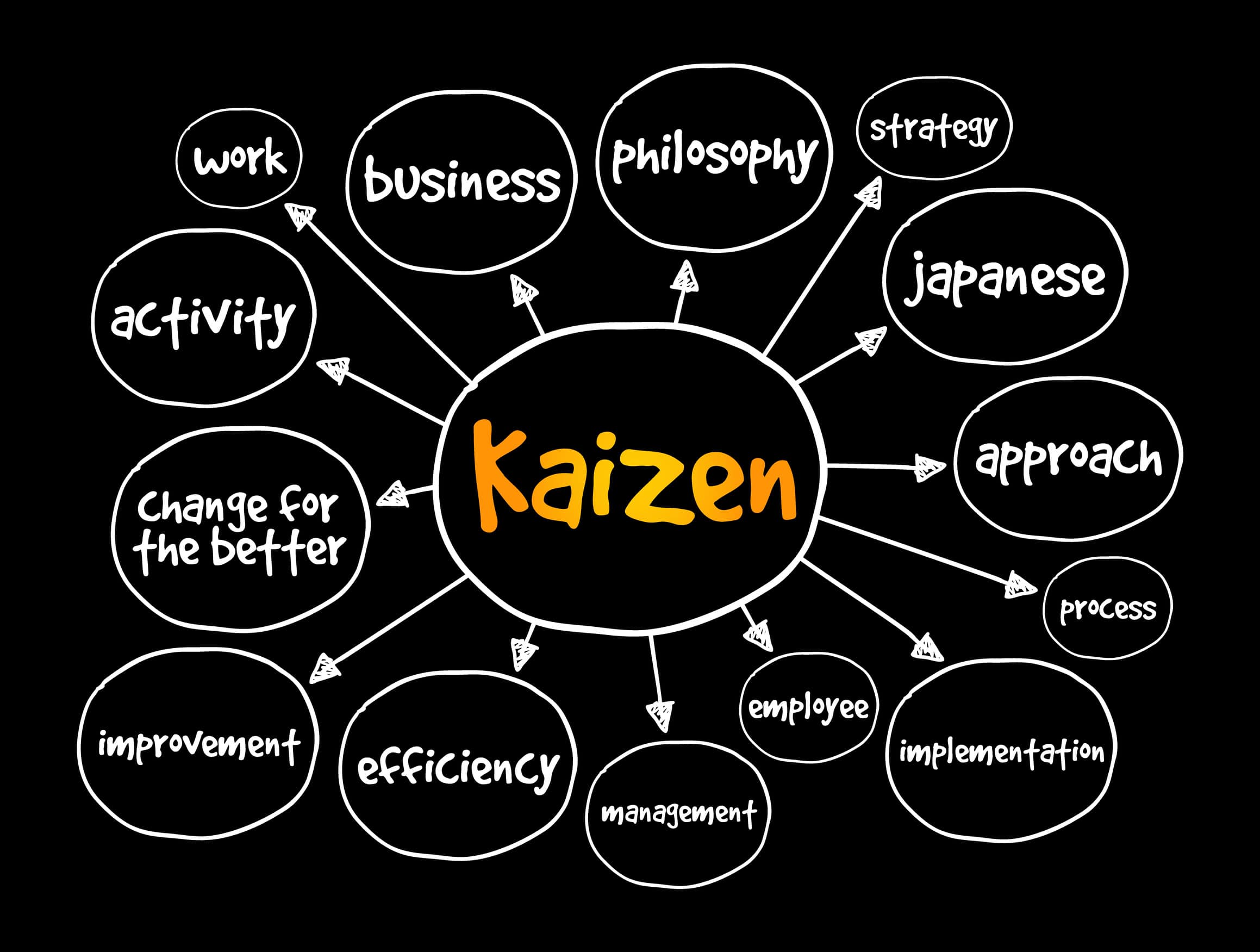
You’re sitting at your desk, deadlines looming, motivation at an all-time low, and procrastination taking over. Sound familiar? You’re not alone. But the power to overcome it and get done with your daily tasks also lies within you.
Japanese culture is deeply ingrained with discipline, mindfulness, and conscious living, wherein they blend ancient wisdom with modern practicality to cultivate purposeful and balanced lives.
Let’s discuss 7 Japanese techniques that offer profound yet practical tools to shift your mindset, overcome laziness, and develop consistent time management tips that boost your productivity.
1. Ikigai – Finding Your Purpose

Ikigai translates to “reason for being.” It’s the intersection of what you love, what you’re good at, what the world needs, and what you can be paid for.
We need a purpose in life. Without a purpose-driven life, we drift, we sway away. Imagine a car without fuel; it can not move and may require an external push to start. However, that external push cannot be forever. In the same way, external motivation can only take you so far. You need an inner fire. That’s what Ikigai gives you.
Start by asking:
-What makes me feel alive?
-What do I enjoy even when I’m tired?
-What am I naturally good at?
Ikigai is a powerful Japanese productivity hack that helps you overcome laziness, beat procrastination, and stay motivated by aligning your daily actions with your life’s purpose.
2. Kaizen – Commit to Continuous Improvement

In today’s whirlwind pace, where we strive to achieve everything at once, Kaizen reminds us to progress without pressure. You don’t need big leaps to move forward.
Kaizen is all about small, steady steps that build momentum over time. Instead of waiting for motivation to strike or for everything to be perfect, Kaizen teaches you to do one small thing each day. Read one page. Stretch for five minutes. Write one idea. Over time, these add up to massive results.
Whether you’re trying to eat healthier, study more, or declutter your home, start small. Then stay steady.
3. Pomodoro Technique – Short Sprints for Big Wins

It’s normal to feel overwhelmed when you have too many tasks, tight deadlines, or high expectations all at once. This mental overload can make it hard to know where to start, leading to procrastination.
When you’re overwhelmed, your brain perceives the workload as a threat, triggering stress and anxiety. This reduces motivation because the tasks feel unmanageable, even if they’re not. In short, overwhelm paralyzes action, and without action, motivation fades.
The Pomodoro technique in this situation can help break your tasks down and make it easier for you to start.
How to overcome laziness with the Pomodoro Technique?
-Set a timer for 25 minutes.
-Break your tasks into 25-minute focused sessions, each followed by a 5-minute break.
-Focus on one task. No distractions.
-Take a 5-minute break.
-After four such sessions, take a longer break.
-Repeat.
Why does it work? Because your brain sees 25 minutes as doable, no more “I’ll start later.” You start now. This Japanese productivity hack helps you overcome laziness by breaking big tasks into manageable chunks. One Pomodoro at a time, it increases daily motivation and builds momentum.
4. Shoshin – Adopt a Beginner’s Mind

Shoshin means “beginner’s mind”, a mindset rooted in Japanese culture. It encourages curiosity, openness, and a fresh perspective toward every task.
Often, laziness stems from assumptions: “I already know this,” or “I’ll fail again.” This mental fatigue blocks action. But when you approach challenges like it’s your first time, you unlock energy and enthusiasm.
To overcome laziness and increase daily motivation, start your day, project, or workout with a clean slate. A beginner’s mind is free of ego and full of possibility.
Let go of past baggage. Start afresh, anew.
5. Wabi-Sabi – Embrace Imperfection

Most of the time, procrastination stems from the fear of imperfection or not knowing where to start. You might have caught yourself saying, “I’ll start when it’s perfect.”
That’s perfectionism talking. And perfectionism is laziness in disguise. It holds you back and convinces you to delay, and becomes a barrier to progress.
Wabi-Sabi is one of the most powerful Japanese productivity hacks that celebrates imperfection. A cracked teacup, a weathered wall, a draft of your first blog post, it’s all beautiful because it’s real.
If you want to overcome laziness and increase daily motivation, stop waiting for perfect conditions. Action beats perfection. Every time. Your first version won’t be flawless. But it will be done. And done is how you get better.
6. Kanban – Turn “To-Do” into “Done”

Ever feel like your to-do list is just a jumbled mess in your head? That’s where the Japanese technique called Kanban can help.
Kanban (meaning “signboard” in Japanese) uses visual boards and task cards to organize your work. Think of it as a big-picture view of everything you need to do, what’s pending, in progress, and completed. Suddenly, your tasks stop feeling like a chaotic cloud and start looking like a clear path.
This method isn’t just about organization; it helps you overcome laziness by turning invisible overwhelm into visible, manageable steps. Every time you move a task from “in progress” to “done,” your brain gets a little boost of motivation.
It’s satisfying. It’s structured. And most importantly, it can increase your daily motivation to stay on track.
How to practice Kanban to increase daily motivation?
Try starting with just three columns: To Do, Doing, and Done. You’ll be surprised how powerful it feels to move a task forward, and how much more you get done when you can see your progress unfold.
7. Hara Hachi Bu – Eat Until You’re 80% Full

You might wonder, “What does eating have to do with laziness?” A lot.
When you overeat, especially heavy, processed foods, you feel sluggish. Your energy dips. Your mind fogs up. And suddenly, you don’t feel like doing anything.
The Okinawans, known for their longevity and vitality, follow Hara Hachi Bu; they eat until they’re just 80% full. This mindful eating habit keeps them light, alert, and energized.
This simple yet powerful Japanese habit boosts energy and mental clarity, helping you overcome laziness rooted in physical fatigue.
Eat mindfully. Tune into your body. Nourish yourself without going overboard.
Conclusion
Overcoming laziness isn’t about sudden bursts of willpower—it’s about building sustainable habits rooted in purpose, mindfulness, and progress. These time-tested Japanese techniques—whether it’s finding your Ikigai, embracing Kaizen, or practicing Wabi-Sabi—offer simple yet profound ways to increase daily motivation and reclaim control over your time and energy. Start small, stay consistent, and let these powerful habits guide you toward a more productive, fulfilling life.
FAQs
What is motivation in Japanese?
In Japanese, motivation is called yaruki, the inner drive or will to act. It is central to many Japanese self-discipline practices like Ikigai and Kaizen, which help people overcome laziness and take action with purpose.
What is the Japanese technique to overcome laziness?
Japanese culture offers several powerful techniques to overcome laziness, including Ikigai (finding purpose), Kaizen (continuous improvement), and the Pomodoro Technique. These Japanese productivity hacks help break tasks into manageable steps, boost daily motivation, and build lasting discipline.
What is the Japanese method of working?
The Japanese method emphasizes discipline, focus, and continuous improvement. With tools like Kanban and Kaizen, it promotes simple yet powerful ways to boost motivation, reduce overwhelm, and get things done.
What is the Pomodoro method of motivation?
The Pomodoro Technique helps you overcome laziness by breaking work into 25-minute focused blocks. It’s a practical method to improve concentration and increase daily motivation, especially when tasks feel too big to start.
(The article is written by Dr.Subita Alagh, Senior Executive, and reviewed by Monalisa Deka, Senior Health Content Editor)
Recommended Reads
6 Japanese Memory Techniques Every Student Must Know
The Myth of Multi-tasking: Is Doing More Actually Getting Less Done?